By CHIMPREPORTS
The Katonga faction of the opposition Forum for Democratic Change (FDC) party is contemplating the formation of a new political party to establish an alliance with the National Unity Platform (NUP) in order to challenge the ruling party’s dominance in the 2026 presidential elections.
Notably, talks have been ongoing since 2021 between former presidential candidates Dr. Kizza Besigye and Robert Kyagulanyi, popularly known as Bobi Wine. The discussions aim to reconcile political differences and create a formidable alliance capable of challenging the National Resistance Movement’s (NRM) grip on power.
If these talks materialize, it is anticipated that Dr. Besigye will throw his support behind Bobi Wine in the upcoming presidential polls. A close associate of Dr. Besigye emphasized the importance of unity within the opposition, stating that President Museveni has exploited their divisions for too long. The combination of Bobi Wine’s popularity among the youth and Besigye’s longstanding opposition following is seen as a potential strategy to overwhelm the NRM.
During a National Council meeting at Besigye’s office, he denied rumors of a secret plan with NUP, cautioning against propaganda and emphasizing the need to guard against misinformation. However, it is understood that the idea of merging opposition forces faced resistance from the current FDC leadership, leading to disagreements with Dr. Besigye.
FDC’s Secretary-General, Nandala Mafabi, has publicly expressed the party’s stance that FDC will not back Bobi Wine, insisting that it should be the other way around. The rejection of the plan by the FDC leadership has led to strained relations with Dr. Besigye, who had engaged in quiet discussions with NUP during the 2021 election campaigns. The disagreement was highlighted by an incident where financial arrangements for party agents became a point of contention between Besigye and FDC’s leadership.

Former FDC Treasurer, Jack Sabiti, disclosed during a press conference at the White Horse Hotel in Kabale Municipality in August 2023 that top party leaders had received “reliable information” about Dr. Besigye’s intentions to form an alliance with the National Unity Platform (NUP). Sabiti, a co-founder of the Reform Agenda that gave rise to FDC, asserted that Besigye, due to the party’s constitution prohibiting a person from contesting for the national presidency twice, should not seek the party presidency again.
Sabiti clarified, “If he (Besigye) wanted to stand for President in the 2026 general elections, he would do it as an individual, not with the FDC flag.” He emphasized that even if Besigye desired to run for President, he should approach the party for consideration rather than attempting to undermine an organization built on the sacrifices of Ugandans.
Despite these statements, sources maintain that Besigye has not abandoned the idea of opposition collaboration, suggesting joint rallies and resource pooling to challenge the ruling party in the upcoming elections.
However, recognizing the challenges of uniting FDC and NUP under the current leadership of Nandala Mafabi and Patrick Amuriat, the Katonga Group is now considering the formation of a splinter party. The group aims to officially part ways with mainstream FDC in Najjanankumbi, proposing the creation of a new political entity.
Erias Lukwago, a prominent member of the Katonga Group, presented a report during the National Council meeting, indicating that some members suggested exploring a new brand and advancing their vision of building a new Uganda with fresh institutions. The move reflects a growing divergence within the opposition, as factions consider alternative strategies and political paths.

Erias Lukwago, a member of the Katonga Group, shared during a press conference that some members are proposing the creation of a new political entity based on the belief that the vision and commitment of the party’s genuine members reside within the Katonga faction. This would involve establishing a new political formation dedicated to building a new Uganda with fresh institutions.
Lukwago mentioned that there have been calls for reconciliation from the Najjanankumbi-based faction of the party, but the Katonga Group’s response is conditional. They insist that for this proposal to be considered, those affiliated with Najjanankumbi must denounce their alleged misconduct, including a coup, chaos, and mayhem at Najjanankumbi, and issue apologies for any negative publicity they have brought to the party. The individuals involved are required to cease presenting themselves as party leaders and vacate Najanankumbi. If they wish to remain party members, they must undergo a cleansing and exorcising process.
This potential formation would be the second party to emerge from FDC, following Mugisha Muntu’s Alliance for National Unity, formed in 2018 after Muntu left FDC. Over the past two decades, various influential figures, including Joyce Ssebugwawo, Beti Kamya, Amanya Mushega, Alice Alaso, Gerard Karuhanga, Augustine Ruzindana, and Beatrice Anywar, have left FDC, weakening the once formidable political party.
The Lukwago report also suggests the need to continue fighting for FDC and rescue it from what they perceive as capture. Additionally, the report proposes denouncing FDC party-related activities and forming a pressure group similar to the Reform Agenda.
Regarding the available options in the Lukwago report, Dr. Besigye acknowledged the applicability of all options. He expressed openness to the idea of forming a social movement, emphasizing the importance of soliciting feedback from people across the country before making a final decision. The Council decided to postpone the initial 19th March Delegates Conference, allowing delegates at least two months to collect feedback and ideas from FDC members nationwide before deciding on the best course of action.

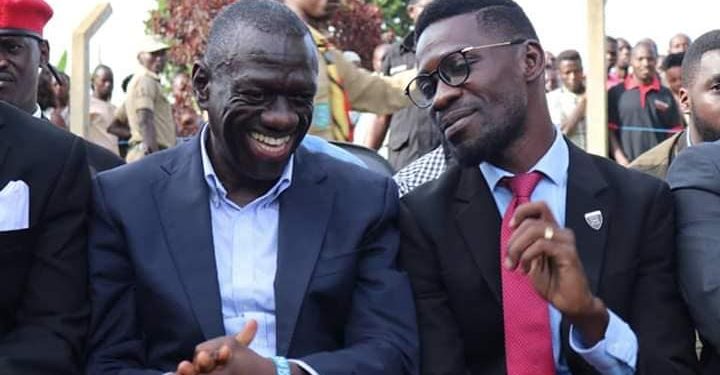
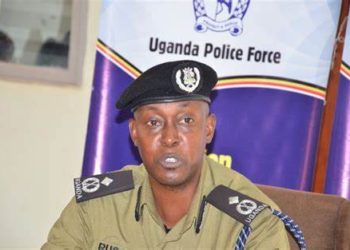
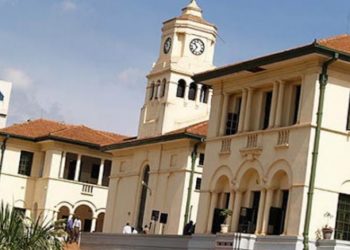
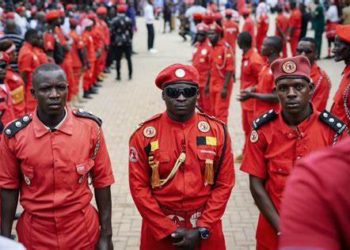

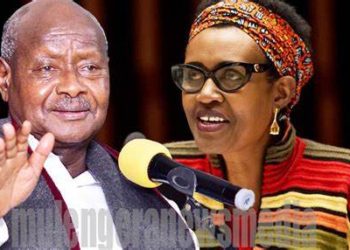

Discussion about this post